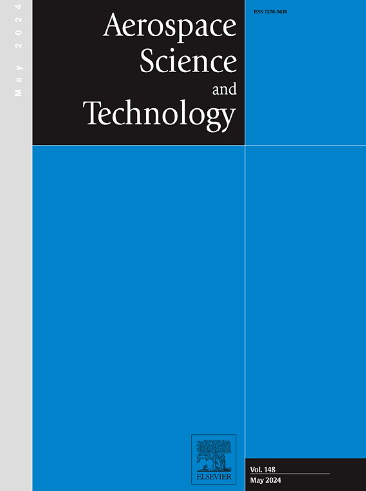Robust trajectory tracking control of a quadrotor under external disturbances and dynamic parameter uncertainties using a hybrid P-PID controller tuned with ant colony optimization
IF 5
1区 工程技术
Q1 ENGINEERING, AEROSPACE
引用次数: 0
Abstract
Controlling the dynamic model of a nonlinear quadrotor system is complex, and manually tuning the controller gains is challenging due to the intricate relationships between dynamic variables and the influence of external disturbances on performance. In this study, we propose designing an improved controller using the ant colony optimization (ACO) method, with the help of an objective function composed of output signal parameters. This method involves determining the optimal gains for the six controllers within the quadrotor model. The aim is to solve stability problems encountered during trajectory tracking under external disturbances and uncertainties of dynamic parameters. First, a model of a nonlinear multi-input, multi-output (MIMO) quadrotor system consisting of four inputs and six outputs was studied. Then, a hybrid controller combining a proportional controller and a proportional-integral-derivative controller (P-PID) was developed to manage the six degrees of freedom (6–DOF) during trajectory tracking. The improved ACO method is employed to tune the controller gain values by minimizing an objective function, with the aim of reducing the error between output and input signals and optimizing the system parameters. Finally, the quadrotor model was simulated to assess the robustness and effectiveness of the proposed P-PID controller. The evaluation, conducted across three different trajectories, considered external disturbances and uncertainties in the dynamic parameters. The results demonstrate that the P-PID controller outperforms conventional PD and PID controllers, offering superior dynamic performance with reduced maximum overshoot, faster rise and settling time, minimized static error, and enhanced stability under challenging conditions.
求助全文
约1分钟内获得全文
求助全文
来源期刊

Aerospace Science and Technology
工程技术-工程:宇航
CiteScore
10.30
自引率
28.60%
发文量
654
审稿时长
54 days
期刊介绍:
Aerospace Science and Technology publishes articles of outstanding scientific quality. Each article is reviewed by two referees. The journal welcomes papers from a wide range of countries. This journal publishes original papers, review articles and short communications related to all fields of aerospace research, fundamental and applied, potential applications of which are clearly related to:
• The design and the manufacture of aircraft, helicopters, missiles, launchers and satellites
• The control of their environment
• The study of various systems they are involved in, as supports or as targets.
Authors are invited to submit papers on new advances in the following topics to aerospace applications:
• Fluid dynamics
• Energetics and propulsion
• Materials and structures
• Flight mechanics
• Navigation, guidance and control
• Acoustics
• Optics
• Electromagnetism and radar
• Signal and image processing
• Information processing
• Data fusion
• Decision aid
• Human behaviour
• Robotics and intelligent systems
• Complex system engineering.
Etc.
 求助内容:
求助内容: 应助结果提醒方式:
应助结果提醒方式:


